Amid lockdowns and pandemic, ecommerce has become a buzz-word. Brick and mortar stores are temporarily closed at many places and several small businesses will struggle to be operational again. Online shopping has become a necessity for many consumers now. Therefore, Ecommerce has seen an unprecedented high in many parts of the world.
Although online retail is doing well, many new businesses struggle to get going. If you are looking to invest in an ecommerce business, or already overseeing one, this guide will help you become more efficient. To set up a business and watch it grow is an amazing accomplishment. So, spend some time working out a proper workable idea. Hunches rarely work. Building an ecommerce business requires more than an attractive brand name, product listing, and sales. Research about the market first. Try to learn most about your target segment. Also remember that benchmarking doesn’t always work. There is no single business template that works for everyone. So before you decide what to sell, try to understand the different business models available.
One viable option available is ‘drop shipping’. It doesn’t require heavy investment at the start but you need to find trust-worthy sources. If you prefer having a warehouse full of goods, you will have to invest in developing a wholesaling or warehousing model. ‘White labeling’ is another viable business model. White label products and services are made by one company but purchased and sold by another. The reseller can customize the product with their own logo, brand, and identity. The manufacturer focuses on finding cost-effective ways of production while the seller can concentrate on the marketability of the products. Once you have decided the business model, focus on the set of products that are to be delivered to the customers at regular intervals. Single product category is an option, too. The single product category can be supplemented with affiliate marketing. In this case, you can control the content marketing on a focused product and concentrate on increasing sales by monetizing traffic. One should explore different business models and compare their pros and cons before committing to one. After that try to align your business model with your resources and strengths. Think hard about platforms. Where exactly do you want to sell? Your marketing strategy will be different for different platforms.
Initially, try to focus on fewer products. If your ecommerce site is full of different products, you will compromise focus. Therefore, it is wise to start out small. Unless you have a massive budget, you cannot realistically compete with the likes of Daraz and Aliexpress. A better idea is to find a smaller niche and concentrate on making it profitable.
Choosing a niche is a very important step in starting your online business. Try to study the successful companies that are selling similar products. Don’t hesitate in choosing a competitive area—a lack of competition may also indicate a lack of market for product(s). Similarly, it isn’t a great idea to enter an overly crowded niche, especially in the presence of big brands. It is important to figure out what you want to achieve. Be specific about it. The better direction you have, the less competition will you face. Figuring out the niche can give you an additional benefit of learning about shoulder niches similar to your product. Pick a product category having at least 1000 keywords and focus on the niche that attracts most attention on social media. Look for affiliate marketing opportunities for more profit. Once you have figured out a business model and a niche, start looking to products to sell. When you do that, try to understand your segment. Try to understand the people who are most likely to purchase your products. Perceiving your ideal customers are important because that will get you narrow down your organic search and also help in devising your advertising campaigns. Platforms like Facebook make it easy for us to find the target audience. You can narrow down your search to focused numbers and demographics. It is hard to know the number of people in your target audience. If you are not absolutely sure of what you want to sell, try affiliate marketing for your idea validation. Test your product before investing. Even if you opt for a dropshipping model, test it thoroughly for potential problems and prepare for customer services scripts to answer frequently asked questions. Before taking the leap, determine the viability of your idea. Test whether your suppliers can meet your pricing. Also look for alternatives. What happens if a supplier cannot deliver timely? Brand building becomes even more important in ecommerce. Choose an appropriate business name and register your company. You will enjoy certain legal protections and tax benefits by registering your company. After fulfilling all the legal requirements, make a decent logo and get the right colors and imagery. If you have a budget, you can hire a digital marketing company to take care of these aspects.
Once you have sorted out the product niche, brand name, and the business model, it is time to put a proper business plan on paper and determine the monthly budget and the required expenses. Remember that cash is like oxygen to any business and financial aspects matter the most to businesses. You are investing resources in a business and it is important to take in account potential expenses and returns. Once you have done that it is time to build your virtual store. There are hundreds of ecommerce shopping platforms and choosing the correct one is not an easy decision. You need careful evaluation of each option and comparisons of the speed, features, and compatibility with payment gateways. If this aspect is too overwhelming for you, you can hire a digital marketing company to make these choices for you. You will probably need their help to run successful advertising campaigns to increase the visibility of your business.


